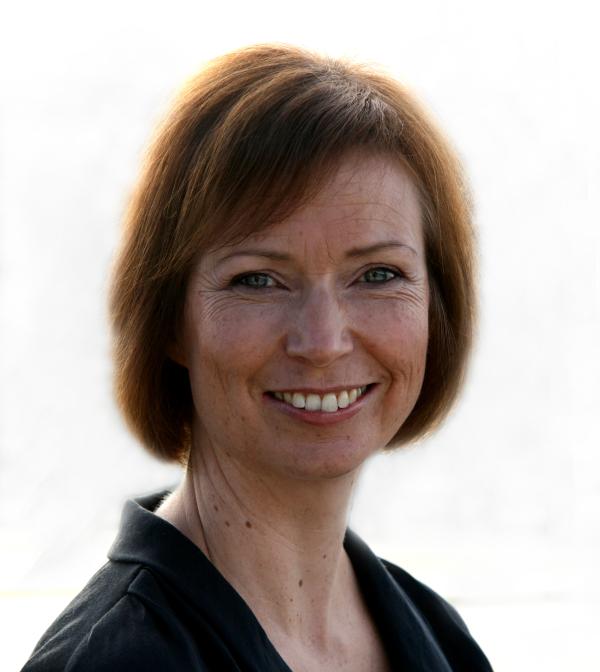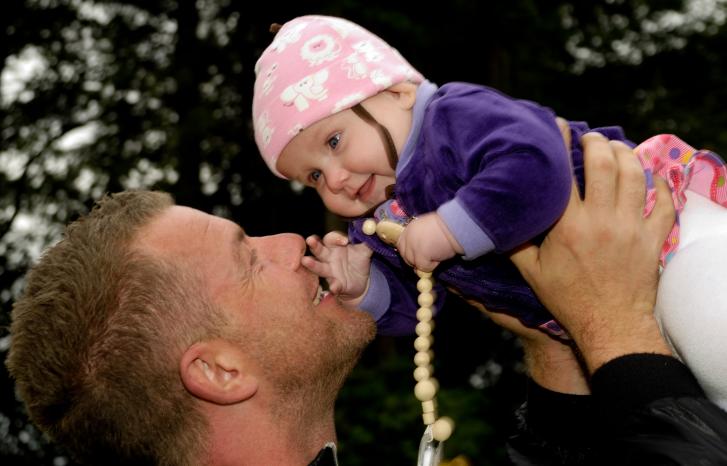“It was surprising to find that employed mothers in Scandinavia and Southern Europe experience the same degree of work-family conflict. You would think that the welfare states in Scandinavia would provide a better framework for combining family and work than in Southern Europe,” says Torill Bull of the University of Bergen.
Bull recently defended her doctoral thesis entitled “Combining employment and child care: The subjective well-being of single women in Scandinavia and Southern Europe”. In her project she studied employed mothers with responsibility for children, and she compared single mothers with coupled mothers in two regions: the Scandinavian countries and countries in Southern Europe.
Bull analysed the results of a large-scale European survey from 2005 and examined the various factors that influence the mothers’ degree of happiness. In this study, happiness is defined as “subjective well-being” – that is, how the mothers themselves perceive their own situation.
“Conflict between work and family life has a negative impact on subjective well-being. This also applies to factors such as financial stress and job stress,” Bull explains.
Job stress
A high level of job stress is correlated with the level of work-family conflict. Job stress implies that the mother perceives her job to be time consuming and fast paced. Other studies have shown that high job stress constitutes a health risk, according to Bull.
Work-family conflict is described in the study as the mother’s perception that work takes time away from her family and that her job demands so much energy that she does not do things outside of work with her family. The perception of work-family conflict may also imply that the mother spends a lot of time worrying about her job outside of work hours and that her family expresses dissatisfaction with the amount of time she spends at work.
“Even though Scandinavia has a good framework for combining work and family, women have jobs that create a lot of stress. In Southern Europe there is a more traditional view of gender roles. In other words, the types of jobs mothers in Scandinavia and mothers in Southern Europe have are very different,” Bull explains.
Enriching factors
Mothers in Southern Europe were less likely to report that their jobs entail “enriching factors” such as variation, the opportunity to learn new things, support from colleagues, perceived job security, career opportunities and the like.

“In this study, more mothers in Scandinavia than in Southern Europe have demanding jobs that require advanced qualifications. This leads to a high degree of work-family conflict, which results in a lower degree of subjective well-being.”
“On the other hand, an enriching job situation can have a positive impact on subjective well-being and health,” says Bull.
For her study shows that employed mothers are happier in Scandinavia than in Southern Europe: Both groups of mothers in Scandinavia report a higher level of subjective well-being, less financial stress and more social support than mothers in Southern Europe.
Financial situation is crucial
However, there are differences between single mothers and coupled mothers within Scandinavia.
“Single mothers in Scandinavia report a much higher degree of financial stress than coupled mothers. They say more often that they find it difficult to make ends meet on the household income and that they usually are responsible for earning all of the household’s income, whereas coupled mothers report that on average they are responsible for earning half of the household’s income.”
“Even though there are differences between single and coupled mothers within Scandinavia with regard to financial stress, there are nonetheless good welfare schemes in place. Consequently, single mothers in Scandinavia are better off than both single and coupled mothers in Southern Europe,” Bull says.
Welfare benefits
Bull found that there is no difference in the degree of work-family conflict between single and coupled mothers in Scandinavia. In addition, international studies show that single mothers are a more vulnerable group in the labour market.
“I believe there are several reasons why there is little difference in the work situation for single and coupled mothers in Scandinavia. First of all, we have a well-developed statutory framework which protects working parents with regard to caring for children and gives the right to return to work following a leave of absence. Secondly, there is relatively little difference between single and coupled mothers when it comes to length of education, when we look at those who are employed. The differences in length of education are greater if we look at all mothers. There is also much less stigma attached to divorce and single motherhood in Scandinavia compared with Southern Europe.”
Protective effect
Bull’s doctoral thesis shows that having an enriching job is highly significant for a mother’s happiness, even though her job might be stressful and lead to work-family conflict.
“Having a job that a person perceives as enriching has a greater impact for single mothers than for coupled mothers in Scandinavia, even though this is crucial for well-being in both groups.”
Bull’s study also shows that various forms of social support are important for the mothers’ well-being.
“With regard to social support, we find a slight difference in the kind of support that is most important for single and coupled mothers. For mothers in couples, social participation outside the home is most important and for single mothers support from a confidant in her immediate environment is most important.”
“Simply put, both factors related to working life and the social environment can have a protective effect on the mothers’ sense of well-being,” says Bull.
Translated by Connie Stultz
Bull, Torill: “Combining employment and child care: The subjective well-being of single women in Scandinavia and Southern Europe”. Doctoral degree completed at the Faculty of Psychology, University of Bergen, 2010.
Torill Bull is employed at the Research Centre for Health Promotion and Development, Faculty of Psychology, University of Bergen.



